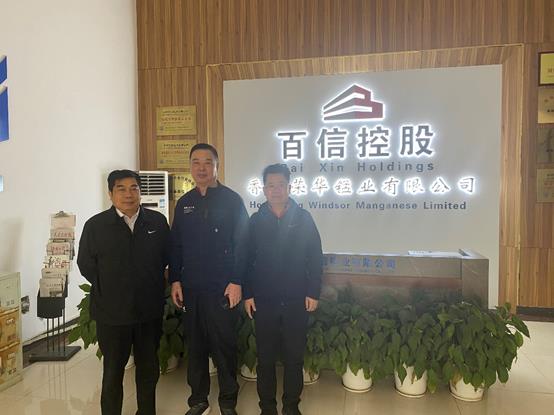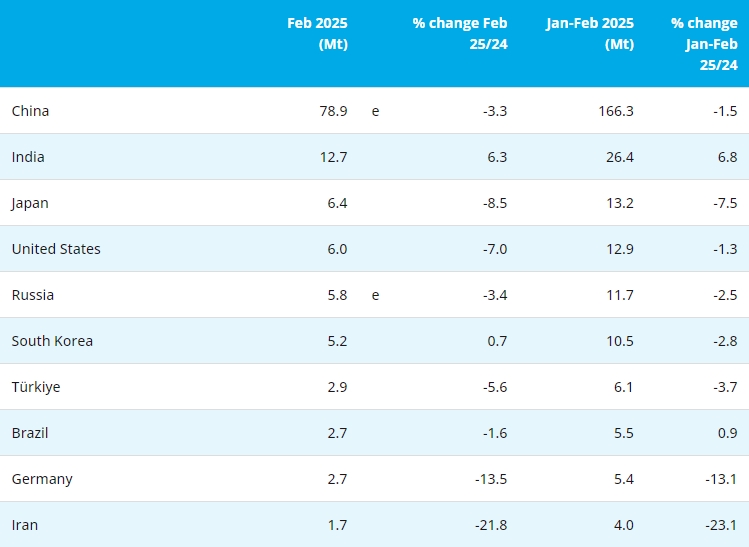
Rise to balance demand, supply, and cut output, energy use for green goals
China's new round of upward adjustments to steel export tariffs aims at boosting domestic supply to promote healthy development of the steel industry even as the nation seeks to curb steel production so as to cut carbon emissions, experts and business leaders said on Friday.
Global steel prices have been rising mostly due to recovering demand, and it is natural and legitimate for any country to resort to tariff and tax changes to balance domestic supply and demand, in order to protect the interests of industry players, they said.
In a second adjustment in three months, China raised export tariffs on high-purity pig iron and ferrochrome to 20 percent and 40 percent, respectively, and removed export tax rebates for 23 steel products since Aug 1.
In May, the nation scrapped export tax rebates for 146 steel products, increased export tariffs on ferrosilicon, ferrochrome, and high-purity pig iron, and applied a provisional zero import tariffs on pig iron, crude steel, recycled steel raw materials, and ferrochrome.
"The moves are in line with China's intensified efforts to transform the energy-consuming steel industry for greener and high-quality growth, with China aiming to peak carbon emissions by 2030 and achieve carbon neutrality by 2060," said Li Xinchuang, chief engineer and Party secretary of the China Metallurgical Industry Planning and Research Institute in Beijing.
As China plans to cut crude steel output to ensure a year-on-year fall this year, tariff adjustments will help balance domestic steel supply and demand, and thus support domestic producers to reduce crude steel output and reduce energy consumption, and overall push the industry to upgrade for high-quality development, he said.
Ding Rijia, a professor specializing in energy economies at the China University of Mining and Technology in Beijing, said policy measures to improve energy efficiency will be vital in helping industry and infrastructure to reduce their emissions and help China honor its carbon intensity reduction commitments.
In addition to readjusting the tariff rate for certain steel products, output cut should be the main theme for China's steel mills in the second half of this year, not only because of environmental targets but also because it would not be feasible for companies to produce much steel when the operational, environmental and material costs are very high, he said.
While global steel demand is well supported by the global economic recovery, perked-up steel prices in overseas markets such as the United States and Europe have pushed up China's steel exports.
Data from the General Administration of Customs showed that China exported 37.38 million metric tons of steel in the first half of this year, surging 30.2 percent year-on-year. Steel imports reached 7.35 million tons, up 0.1 percent year-on-year.
"The world steel prices are currently high due to interruptions to output caused by COVID-19 and the recovering demand," Li said.
"The new tariff policies may result in reduced Chinese exports of related steel products, but it is ultimately up to the enterprises to decide whether or not to export products. The new policies have nothing to do with pushing up world steel prices on purpose."
The move will also help with curbing the surging prices of iron ore imports, to facilitate the healthy operation of the steel sector, Li said.
Chen Ziqi, deputy secretary-general of the experts and academic committee of China International Engineering Consulting Corp, said the tariff adjustments once again sharpened the domestic steel industry's focus on "satisfying domestic demand" and shows the industry is "not export-oriented".
Exports of low-value-added steel products increase energy consumption as well as the pressure to reduce carbon emissions while generating limited profits when import prices of related ores are high, Chen said.
Source: CHINA DAILY
Copyright © 2013 Ferro-Alloys.Com. All Rights Reserved. Without permission, any unit and individual shall not copy or reprint!
- [Editor:kangmingfei]



 Save
Save Print
Print Daily News
Daily News Research
Research Magazine
Magazine Company Database
Company Database Customized Database
Customized Database Conferences
Conferences Advertisement
Advertisement Trade
Trade














 Online inquiry
Online inquiry Contact
Contact

Tell Us What You Think